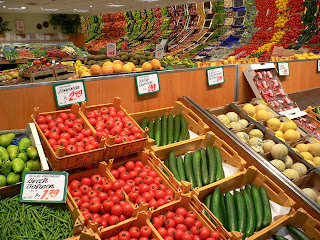Inequality in the U.S. is higher than it has ever been by many measures (see this article in Weakonomics). While the country has long had a high tolerance for inequality as compared to most parts of the world, this holds true only to the extent that it is considered "just" inequality. Inequality based on what is perceived as unfair advantage has an equally long tradition of being condemned.
There are any number of social (not to mention moral) arguments against dramatic inequality: it turns out that high inequality is associated with worse health and happiness indicators for all (not just the poor). But there is also a business and investment case against extremely high inequality.
Jon Shayne, writing on the PBS Newshour's The Business Desk, looks at the dramatic divergence of national income going to capital and going to labor. In a fascinating interview with Jon, Andrew Smithers takes on the conventional wisdom (suspect as that should always be, as John Kenneth Galbraith pointed out) about this divergence, which most attribute to shifts in technology and winner-take-all knowledge
economies. Smithers offers a different (and convincing) explanation: executive compensation has introduced a number of incentives that encourage managers to maximize short term profits at the expense of long-term investment in labor and productivity. This is both more troubling for
long-term prospects and more manageable--if we had the political will. It
is precisely in those cases where individual short-term maximization comes at
the expense of longer-term and broader publication goods that politics should
step in: to make markets work to the ends that we collectively decide on (and
investment that promotes long-term stable growth should, in theory, be an easy
one to decide on).
As I have written about previously, Bob Frank proposes a steeply progressive consumption tax that would discourage wasteful consumption while not penalizing productive investment. (See this and other policies that economists love and politicians hate at Planet Money.)
In his blog, Jon Shayne reports another immodest proposal from Josh May:namely that low P/E investments be taxed at a low rate and high (i.e. more speculative) P/E investments (at the time of purchase) have a high capital gains tax rate. As Jon points out, another alternative would be for the capital gains tax rate to become progressively lower over time (i.e. rewarding holding and long-term investment).




















